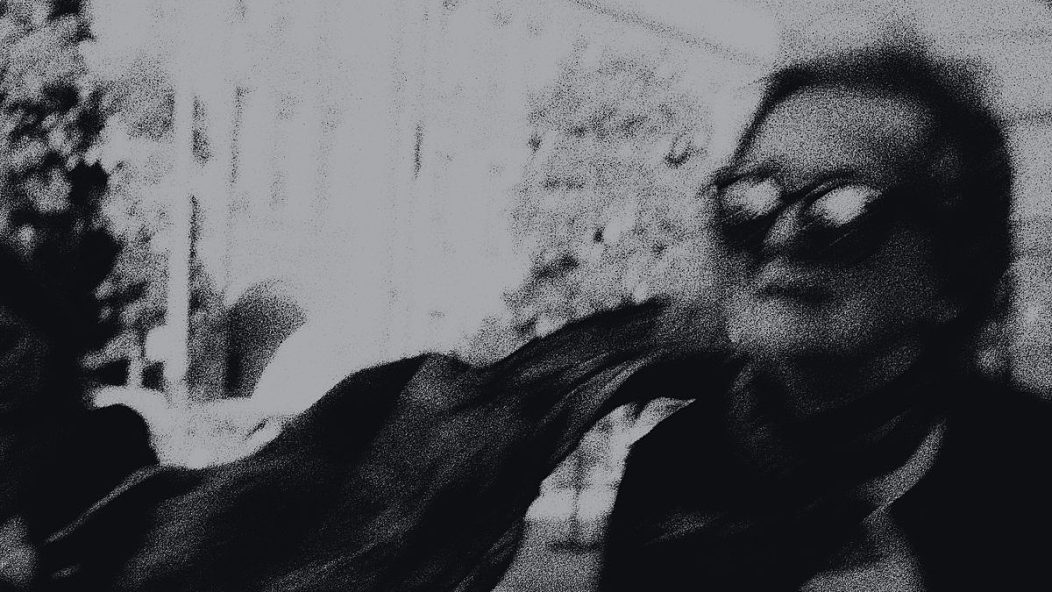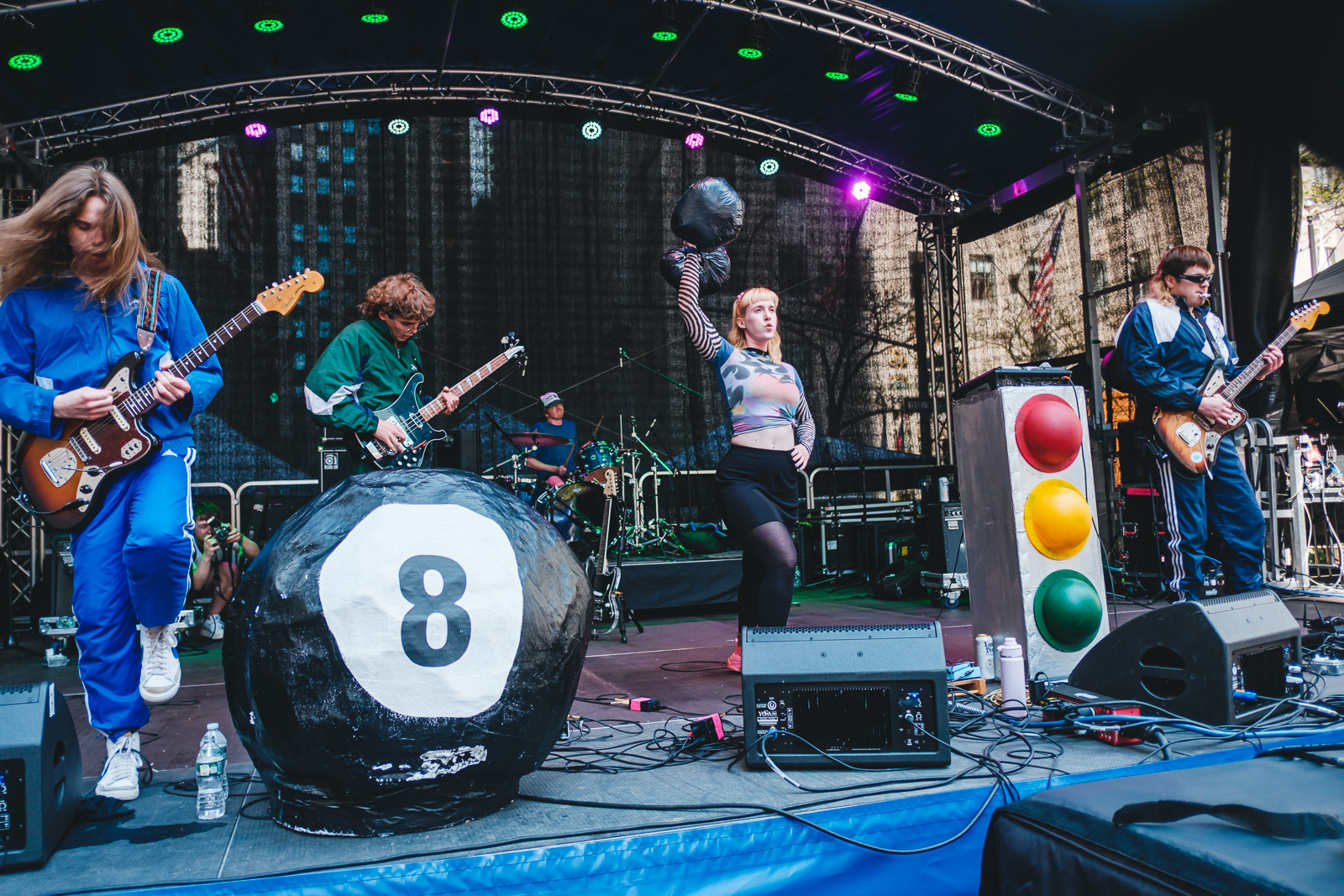
Deafheaven Widens Their Gaze on "Ordinary Corrupt Human Love"

…
When we last heard from Deafheaven, they were burning down false myths of urban grandeur. Singer George Clarke had recently relocated to Los Angeles from his native Bay Area, and Sunbather’s visions of rebirth and optimism gave way to New Bermuda’s disaffected realities of LA’s sweltering sprawl: “There is no glamour, only the mirage of water ascending from the asphalt.” With their fourth full-length Ordinary Corrupt Human Love, the band has broken through to the other side of urban ennui, positioning the quotidien as moments for aesthetic transcendence.
The first notes on Ordinary Corrupt Human Love are a delicate piano progression, and they set the tone for an album that feels wistful and sleepy throughout. But it would be inaccurate to mark the piano as the record’s start. Instead, album opener “You Without End” begins with 20 seconds of ambient silence: a contemplative, disarming shift that gives way to sloping guitars and a spoken word passage.
This is not the first time Deafheaven has worked plain speech into their songs: New Bermuda‘s track “Baby Blue” finishes with an announcement about closings on the George Washington Bridge — a reflection of metropolis at its worst. In contrast, “You Without End” opens with actress Nadia Kury’s voice soothingly reciting lines from a short story about Oakland. Her words document a phenomenology of megalopolis, a portrait of a city brimming with flashes of intensity: street lights, cigarette burns, flocks of geese. On Ordinary Corrupt Human Love, the city is a place for constant inspiration and growth.
…
…
Deafheaven uses a running motif of blooming and wilting to express themes of growth and decay throughout the record. On “Honeycomb,” Clarke describes himself as a “blue-faced fool” who is “hung from the throat by sunflower stems,” and on “Canary Yellow,” he ponders the “language of flowers” before engaging in a back-and-forth with a male chorus. “On and on and on we choke on,” they dutifully repeat, before Clarke screeches, “my lover’s blood!” It’s a series of shocking dichotomies that attempt to hold conflicting ideas together at once: creation and destruction, love and violence, anonymity and closeness. To Deafheaven, the city sits as a canvas for these bold contradictions.
The lyrical exploration of man and the urban underbelly deepens throughout the record, and rewards deeper analysis. “Honeycomb” references the Argentine novelist Julio Cortazar, whose novels weave existential tales of urban protagonists who find themselves consumed by the dense fabric of the city street. Similarly, Clarke plays the observer on “Night People,” in which he paints a picture of lonely desperation: “I spied along the concrete canvas: A woman, her eyes brimming with vacancy; and bear her hugging barbiturates; her head rolled from faint shoulders.”
As with the lyrics, Ordinary Corrupt Human Love is musically introspective and at times nostalgic, dramatic, and occasionally fantastical. On “Honeycomb,” looped and distorted guitars open up to the densest, most technically impressive track on the record: McCoy adeptly snaps from crunchy, distorted minor-chord progressions that recall early death metal like Carcass to lofty, glimmering major-chord crescendos that feel especially triumphant against Clarke’s barking howl. “Canary Yellow” picks up where “Honeycomb” left off, similarly pitting mile-a-minute tremolo riffs against Clarke’s grated screams, before transitioning to a grungier, more melancholic tone for the call-and-response.
The back-end of the album is nearly an entirely different record, filled with lilting, airy guitars and atmospheric piano-driven marches. Deafheaven has always been derided (and praised) for their refusal to fall into easy categorization, and fans looking for an hour of headbanging that seemed more prevalent on New Bermuda will be left empty handed. But those who stick around will be rewarded with the band’s most intricate compositions to date, with influences that span Slayer to Slowdive.
…

…
As trite as it is to say Deafheaven borrows from swirling shoegaze, “Near” could very nearly be a strange, otherworldly cut from Souvlaki. “Glint” is a dark and southern-fried track with a low bassline reminiscent of first-wave emo. Even when the track eventually gives way to guttural screams and distorted shreds of heavy metal goodness, Jack Shirley’s production ensures that the song remains cohesive; together, the song sounds like different takes on the same basic minor chord progression. On “Night People,” Clarke reveals the depth of his singing voice, where he is accompanied by Chelsea Wolfe’s hauntingly dulcet and delicate intonations. Album closer “Worthless Animal” merges the record’s two competing sounds, pairing a bluesy guitar with Clarke’s thundering growl as he pontificates on the biblical nature of animalistic violence.
As with Deafheaven’s previous releases, they often bite off a bit more than they can chew, and some of the progressions lose their momentum as they move from fast and loud to slow and somber and back again. Oftentimes, as when Clarke’s screams give way to a dirge-like chant, the record seems muddled, too crowded with too many towering ideas for just seven songs. But fans who appreciate their sonic diversity and lyrical depth will likely find this record to be their most theatrical and literary release to date.
— Arielle Gordon
…
Ordinary Corrupt Human Love releases today via ANTI- Records. Follow the band on Facebook.
…
Become an Invisible Oranges patron.
…










